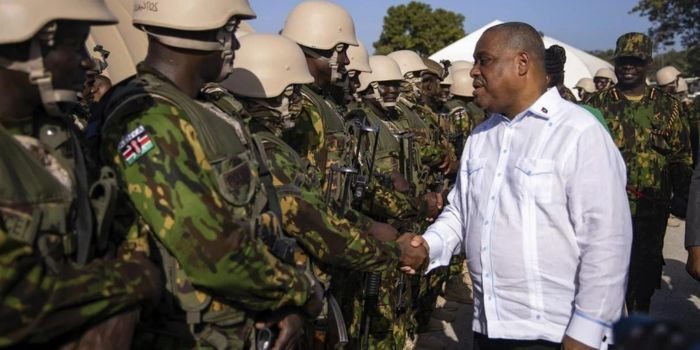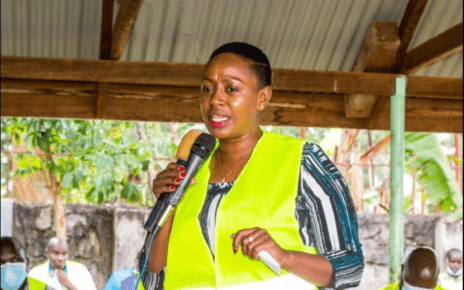Haitian Prime Minister Garry Conille has recently voiced significant concerns regarding the Kenyan-led mission intended to stabilize Haiti, highlighting issues with inconsistent and delayed funding. Conille’s apprehensions underscore a broader issue that threatens the mission’s success and the credibility of Haiti’s transitional government.
Conille, a seasoned physician and former UNICEF regional director, has pointed out the dire conditions faced by the Haitian people. He emphasized that the current circumstances demand urgent action, noting that the population’s expectations are high. “People are living under very bad circumstances. So, they want to see action. They want to see movement,” Conille remarked, reflecting the critical need for prompt and effective intervention.
The Kenyan-led mission is seen as a pivotal step towards restoring order in Haiti, a nation plagued by political instability, economic difficulties, and widespread insecurity. However, the Prime Minister has expressed concern that delays in funding and insufficient resources could undermine the mission’s effectiveness and the credibility of the transitional government. “Unfortunately, the resources are not enough and not coming quickly enough. We understand that there are a lot of emergencies going on and there is heavy fatigue, but the good news is that there is hope,” Conille acknowledged, recognizing the global challenges but stressing the necessity of addressing Haiti’s immediate needs.
The stakes are high, as Conille warned that failing to meet the mission’s funding requirements could lead to shattered expectations and a collapse of the entire system, including the transitional government’s credibility. “The arrival of the Kenyans has created expectations, and we need to meet this expectation, or the whole system crumbles, including the credibility of the transitional government,” he cautioned.
As Haiti’s situation continues to deteriorate, Conille’s remarks highlight the crucial role that international support plays in the success of peacekeeping and stabilization efforts. The Prime Minister’s concerns reflect a broader issue of ensuring that resources are allocated swiftly and effectively to meet the urgent needs of the Haitian population.
In contrast, Multinational Security Support Mission in Haiti Commander Godfrey Otunge remains optimistic about the Kenyan-led deployment. Otunge outlined the mission’s strategy, noting that while previous missions allowed for greater autonomy, the current assignment in Haiti includes full support for local police forces. This approach aims to ensure that the fight against gangs continues even after the departure of international envoys. “Once we now reach the full operational capability of the mission, there will be nothing to worry about in the issue of gangs in this country,” Otunge assured, expressing confidence in the mission’s eventual success.
The mission, funded by the United States government among other donors, represents a significant international effort to address Haiti’s pressing challenges. However, the ongoing concerns regarding funding and resource allocation emphasize the need for timely and sufficient support to ensure the mission’s effectiveness and the stability of the transitional government.
As the situation evolves, the international community’s response will be critical in determining the mission’s success and its impact on Haiti’s path to recovery.



